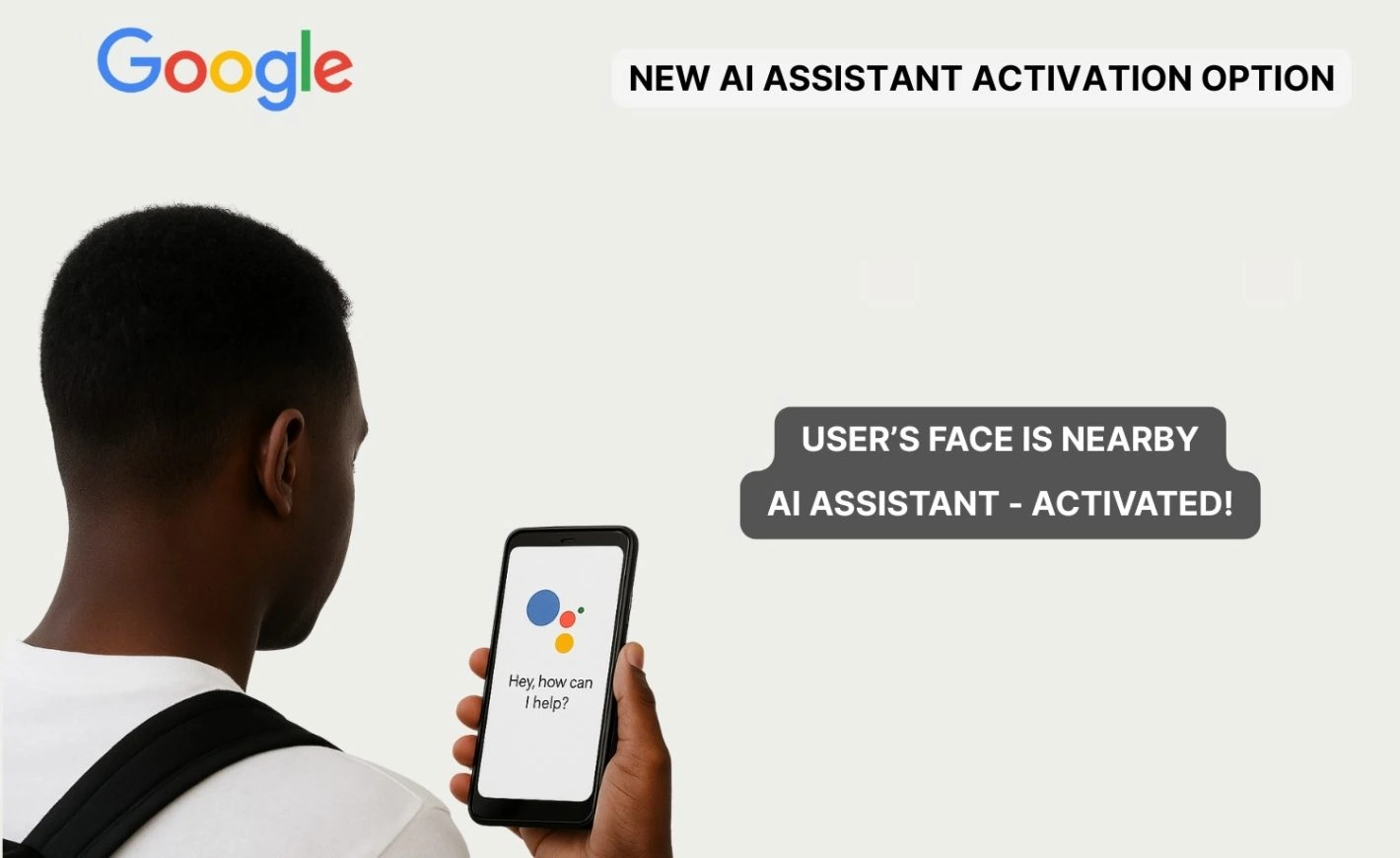Google is poised to revolutionize how we interact with its Gemini AI assistant. According to a recently filed patent, the company is developing a “face activation” method that will replace the need for the familiar “Hey Google” hotword.
The patent describes a system that uses the capacitive sensor grid on a smartphone’s touchscreen to detect when the device is raised to a user’s face. This isn’t a simple motion sensor; it’s a more sophisticated system that processes the shape and electrical field changes to recognize a deliberate attempt to engage the AI. This “face-near” signal is unique and is intended to be more reliable than a hotword, which can fail in noisy environments, or a button press, which requires a conscious action.
This technology is a key part of Google’s broader strategy to make Gemini an “ambient” assistant that is always ready to help without being disruptive. While the first implementation is likely to be on Pixel phones, the patent also hints at its potential for other devices, including smart glasses.
The core of this new activation method relies on an overhauled, next-generation Siri, which is expected to launch in Spring 2026. This smarter assistant will be crucial for the success of these new wearables, as the primary interaction will be through voice and AI. By integrating these features into lightweight, everyday devices, Google is aiming to create a user experience that is intuitive and effortlessly integrated into daily life.
Google’s AI Activation Patent Puts Pressure on Competitors
Google is set to revolutionize how we interact with its Gemini AI assistant by replacing the traditional “Hey Google” hotword. A recently filed patent reveals a “face activation” method that will automatically trigger the assistant when a user raises their phone to their face, creating a more seamless and intuitive experience.
This frictionless technology is designed to solve common issues with voice commands and has significant implications for the tech industry. For Google, this could be a major differentiator for its Android ecosystem, particularly for Pixel phones, boosting Gemini’s adoption and cementing its position as a leading mobile AI assistant.
The move puts pressure on competitors. For Apple, this more advanced activation method could challenge Siri’s reliance on “Hey Siri” or a button press, forcing Apple to innovate. Amazon also faces a challenge as its Alexa assistant, dominant in smart homes but less so on mobile, risks falling further behind in smartphone-based AI interaction.
For other Android OEMs, this technology could either be a win or a threat. If Google licenses it, they could gain a powerful new feature. However, if it remains exclusive to Pixel, it could give Google’s own hardware a significant competitive advantage.
[H/T] Phandroid




